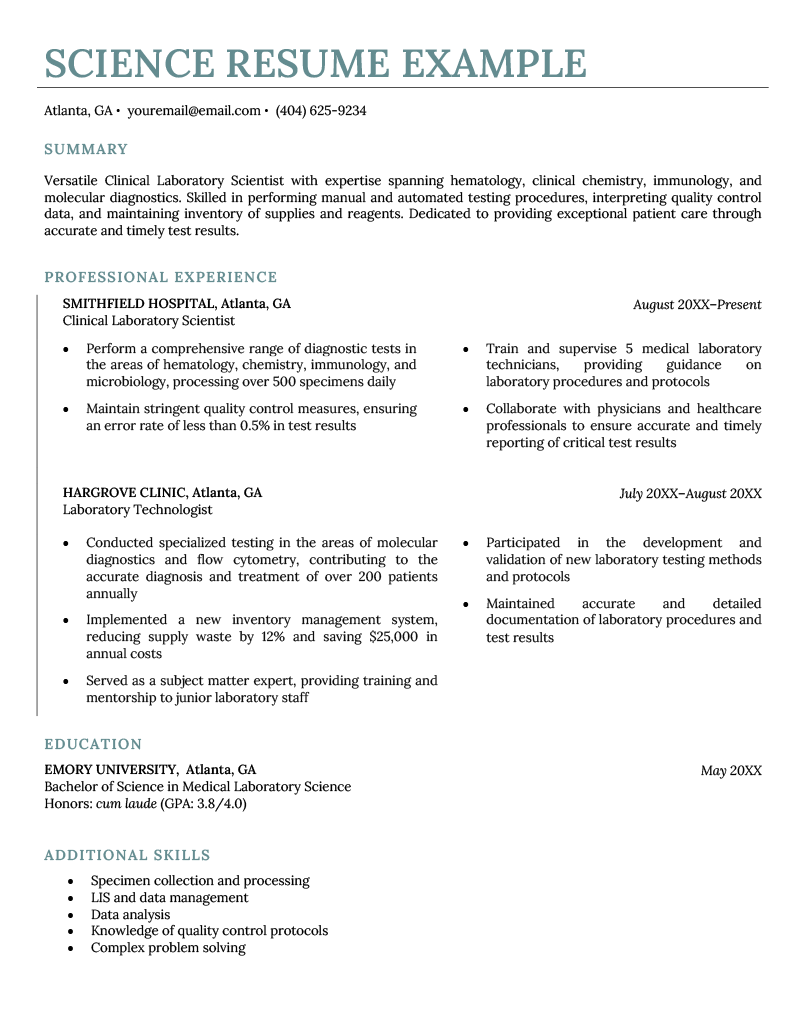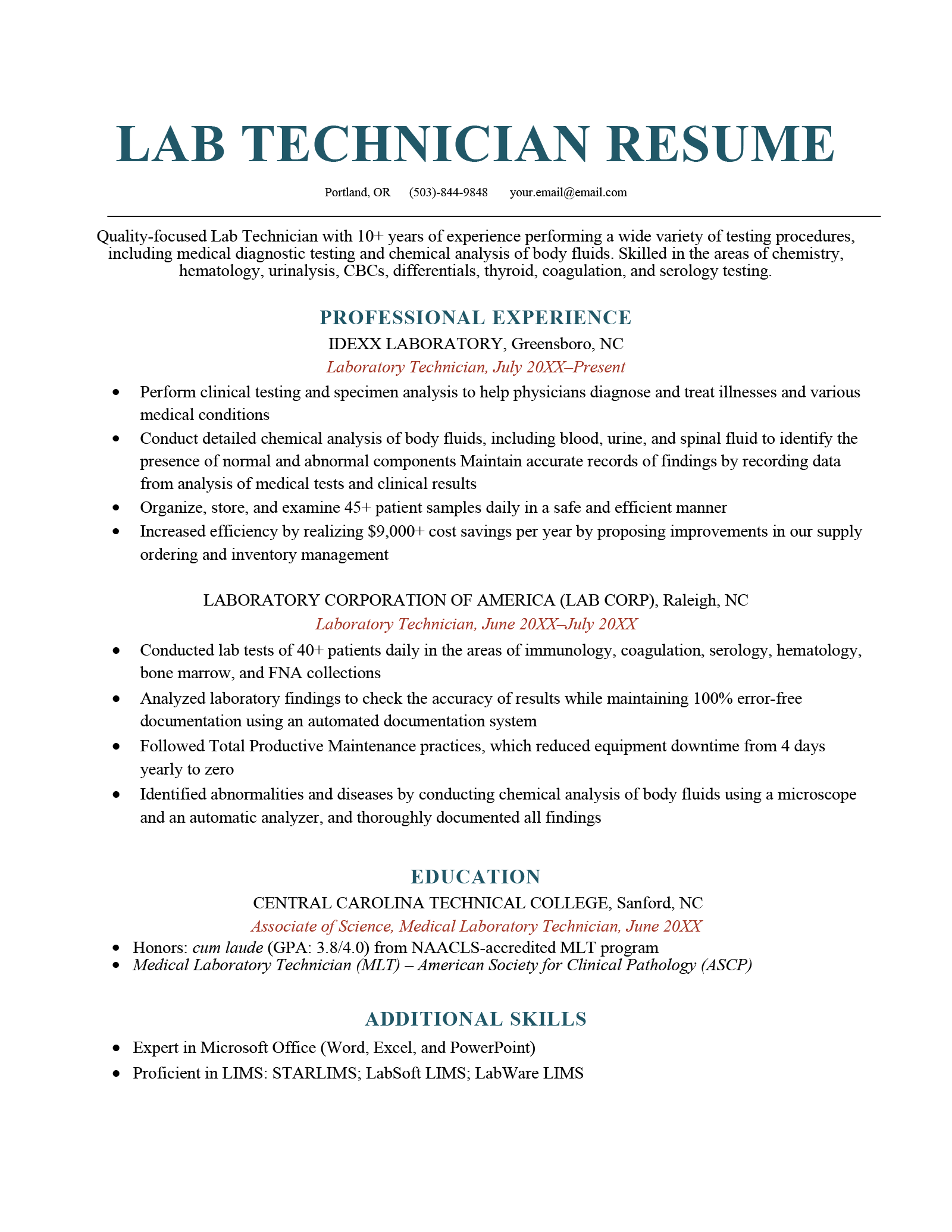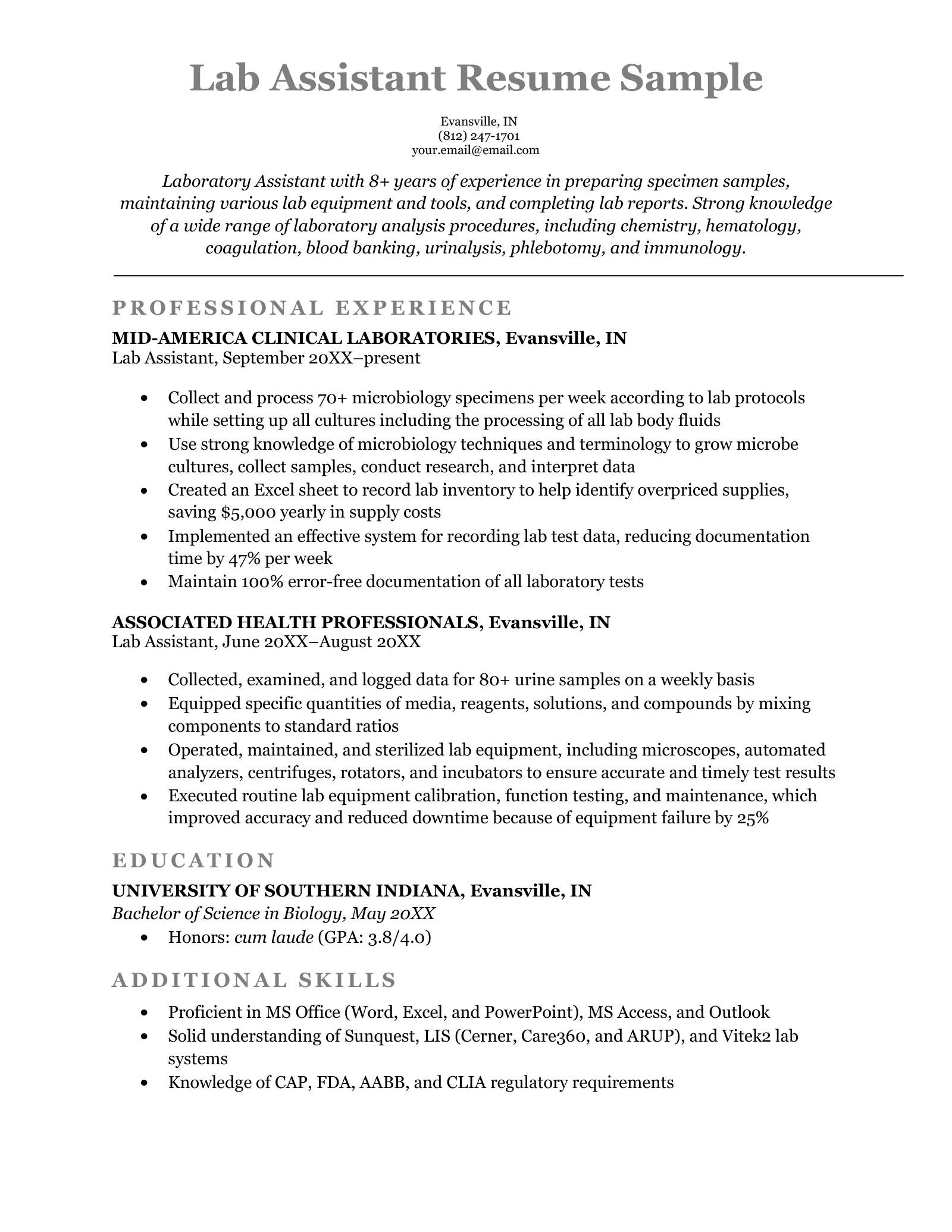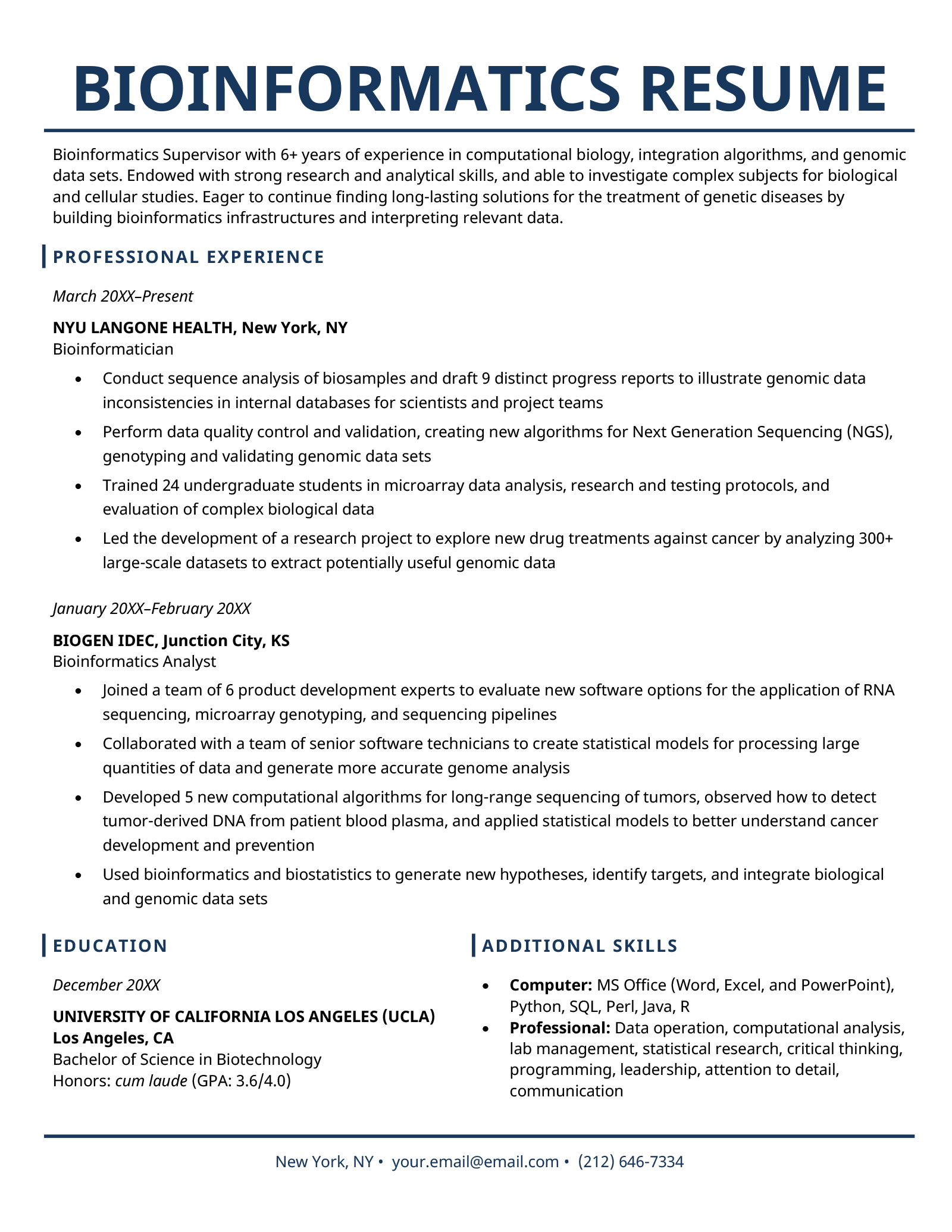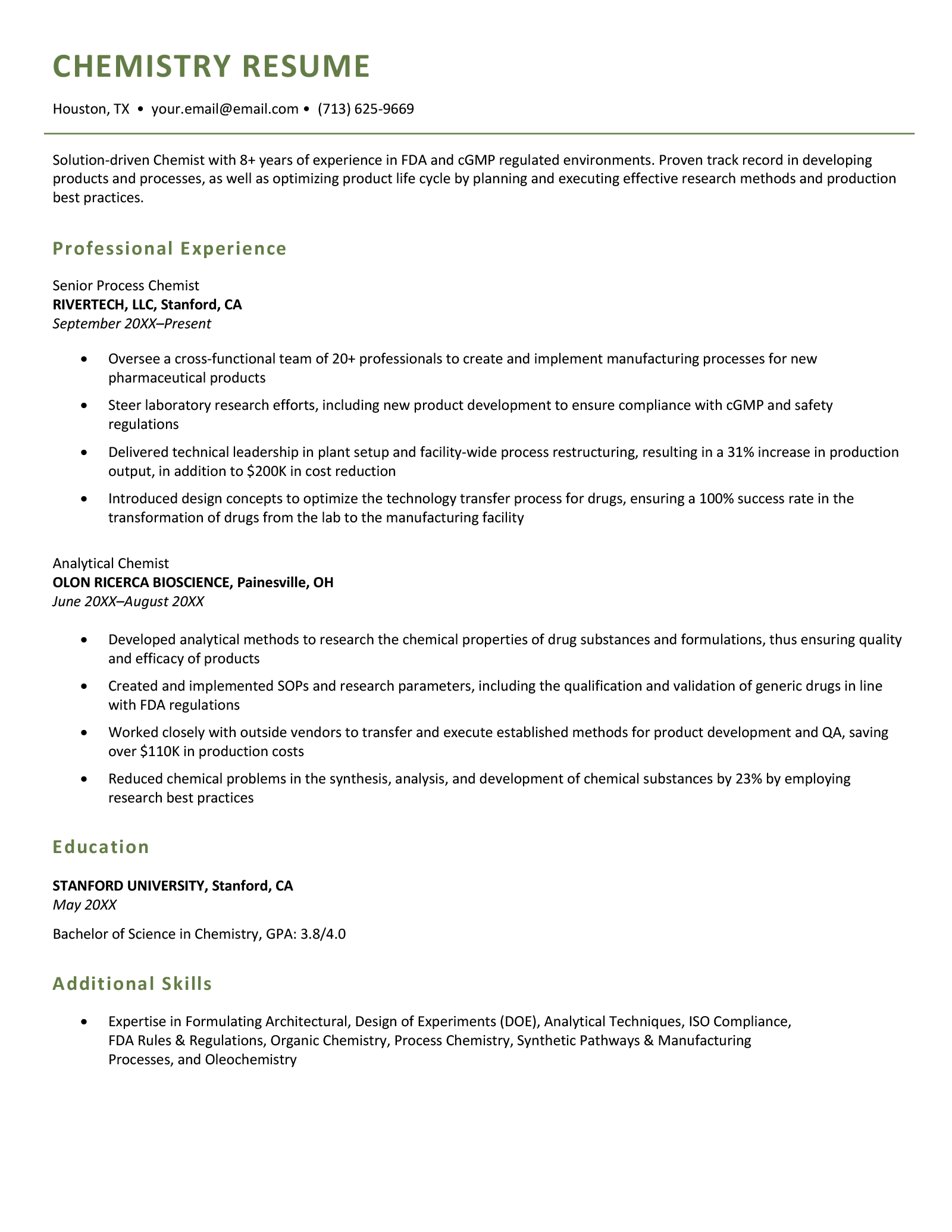Copy-and-paste text template
FIRST AND LAST NAME
Email: your.email@email.com
Phone: (123) 456-7891
Address: Street, City, State
LinkedIn: linkedin.com/in/yourprofile
Objective
[Scientific Field] professional with [No.] years of experience. Seeking to leverage my experience in [Relevant Technical Skills] to fill the [Position Title] position at [Company Name]. Hold a [Degree/Diploma/Certification] in [Degree/Diploma/Certification Title]. Skilled at [2–3 Relevant Scientific Skills]. A [Adjective #1] and [Adjective #2] worker aiming to contribute to the success of [Company Name].
Professional Experience
- Use the present tense for your current [Job Title] role, unless describing a completed project or initiative
- Include a bulleted list of your achievements as a [Job Title]
- Start each bullet point with an action verb (like “develop” or “manage”) to grab attention
- Use hard numbers when possible to quantify your past achievements as a [Job Title]
- Mention how you’ve applied some of the skills listed in your skills section
- List relevant accomplishments from your previous role as a [Job Title]
- Assuming you’re no longer working in this [Job Title] role, use past tense verbs to describe your work
- Include 3–6 bullet points for each [Industry] role
- Skip the pronoun “I” and begin directly with a verb
- Although you’ll usually list work experience, feel free to include any relevant research, internships, or volunteer work if you lack formal work experience
Education
Skills
- List skills and certifications relevant to the [Job Title] job you’re applying for
- Look at the job ad for ideas of the skills the employer wants and that are common in the [Industry] sector
- Emphasize hard/technical skills in this section
- Be as specific as possible by including names of tools, equipment, and software you’ve mastered that are used in the [Industry] industry


